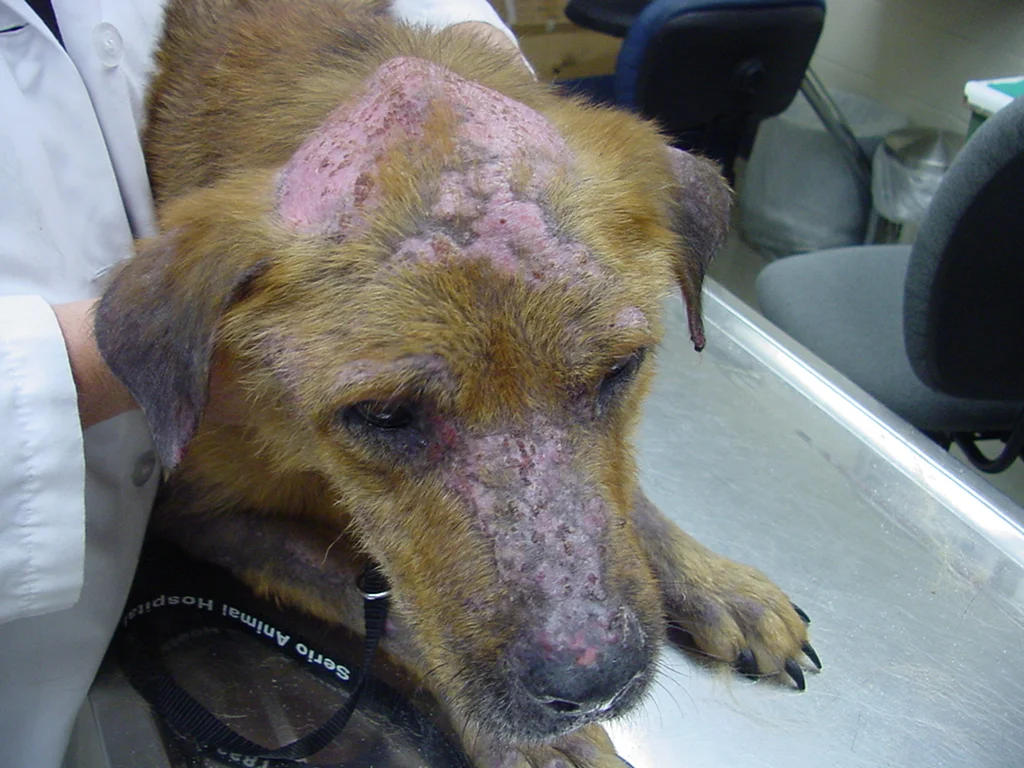Pemphigus foliaceus (PF) is one of the most common autoimmune skin diseases in domestic animals. In this disease, the connections between skin cells are targeted by autoantibodies, resulting in the separation of the cells from each other. When the cells separate, they may form pustules/pimples that eventually form into crusts/scabs.
Pemphigus can start almost anywhere on the body; however, face, ears, tip of the nose, and pawpads are most commonly affected. Other diseases can mimic pemphigus foliaceus, so it is important your veterinarian rules out the chance for bacterial or fungal (i.e. ringworm) skin infections first. A skin biopsy, involving taking a segment of skin tissue, is required for definitive diagnosis of the disease.
There are many therapeutic options for pemphigus foliaceus; however, treatment may vary based upon areas of the skin where the pet is affected, if there’s any other infections on the pet, and suspected cause of the disease.
Corticosteroids (i.e. prednisone or similar) are the mainstay of therapy for PF and necessary in order to get the disease into remission. Once in remission, the medication is tapered to a maintenance dose over many months. Many dogs require additional immunosuppressive or anti-inflammatory therapies in order to be able to decrease the dose of steroids. The pet may need monitoring bloodwork throughout the therapies to ensure no untoward side effects.
While no therapy is without the chance of side effects, pemphigus foliaceus can be life threatening if not treated. It is the goal of the vet to be able to balance the side effects of any potential therapy with the severity of the disease. Seeking a referral for a board certified veterinary dermatologist may be of benefit, as they manage many pets with pemphigus foliaceus and various other autoimmune skin diseases. Few pets may not respond to therapy; however, the vast majority of pets will do well, even on life long, low, doses of steroids.
Blog Post Author:
Katherine Doerr, DVM, Dip. ACVD
Dermatology for Animals


